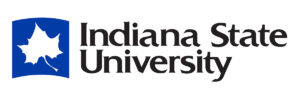
Learning the Domain of the Mind at Indiana State University
Indiana State University appears in our ranking of the 50 Top Online Bachelor of Psychology Degree Programs.
At Indiana State University, students have a wealth of possibilities when it comes to the study of psychology, counseling, and various subfields. Undergraduate students can study either on the campus or online as they wish, and graduate students may study on campus.
Undergraduates may choose to pursue a Bachelor of Science in Psychology. This major requires 47 credits of psychology courses with the rest of the 120 credits made up of core courses spread over the four years of undergraduate study. Classes include Cognitive Psychology, Diversity and Ethics in Psychology, and the Psychology of Personality. Students may select from one of three capstones: fieldwork, research, or honors thesis. The online version of the degree is identical to the on-campus version.
At the master’s degree level, students interested in psychology can select Clinical Mental Health Counseling, Genetic Counseling, School Counseling, and Psychology. The psychology degrees may be either Master of Arts, Master of Education, or Master of Science, depending on the discipline.
The Master of Arts in Psychology comprises 32 credits and focuses heavily on research and the required thesis. Two seminars are required, as well, and so is a course called History and Foundations of Clinical Psychology. Doctoral candidates may choose from one of two counseling degrees: Guidance and Psychological Services: Counselor Education or Guidance and Psychological Services: School Psychology. Both of these comprise 90 credit hours, 18 of which are the dissertation. The student may select certain courses from the list.
About Indiana State University
The core values at Indiana State University center around the public good and public service to that end. The university was founded in December 1865 in the old buildings of the failed Vigo Collegiate Institute. At that time, the university was simply a normal school for teacher training. Just about 65 years later, the school was renamed the Indiana State Teacher’s College, and it had been granting bachelor’s degrees in teaching since 1908.
It became Indiana State University in 1965. The university’s dedication to public service and the collective good has continued throughout its entire history. Indiana State University is equally dedicated to diversity, and fully a quarter of its students are from diverse backgrounds. The principle of “equity for all” is central to the university’s curricula, as well, and students from all backgrounds can find relevant course material to their backgrounds in almost all classes.
Featured Programs
The most famous alumnus is Larry Bird, a three-time NBA champion and widely considered one of the greatest basketball players who ever lived. John Wooden, who won 10 NCAA championships with UCLA started out at Indiana State University.
Indiana State University Accreditation Details
Indiana State University has held full regional accreditation from The Higher Learning Commission since 1915. Many of the school’s departments have also earned academic accreditation on their own merits. The organizations from which they earned such accreditation include the:
- Academy of Nutrition and Dietetics
- Accreditation Commission for Education in Nursing Inc.
- American Occupational Therapy Association
- American Physical Therapy Association
- American Psychological Association
- Commission on English Language Program Accreditation
- National Association of Schools of Art and Design
- National Association of Schools of Music
- National Council for Accreditation of Teacher Education
- Council for Accreditation of Counseling and Related Educational Programs
- American Association of Family and Consumer Sciences
- National Recreation and Park Association
- Council for Interior Design Accreditation
- Council on Social Work Education
- Accreditation Review Commission on Education for the Physician Assistant Inc.
- American Council for Construction Education
- Accreditation Board for Engineering and Technology Inc.
- Association of Technology, Management, and Applied Engineering
- The Association to Advance Collegiate Schools of Business
Indiana State University Application Requirements
Indiana State University accepts GED testing scores in lieu of high-school transcripts. Students must send either as well as take either the SAT or the ACT. Military students may receive college credit for their military training. Anyone 21 years of age or older does not have to submit the SAT or the ACT.
Graduate students in psychology must have a bachelor’s degree from a regionally accredited university that includes at least 12 credits of psychology classes and an overall GPA of 2.75. The Graduate Record Examinations are required. Students must also submit two letters of recommendation, a letter of intent, and a resume.
Ph.D. candidates must have a master’s degree, a cumulative undergraduate GPA of 3.0, and a graduate GPA of 3.5 to be considered. Either the Graduate Record Examinations or the Graduate Management Admission Test is required.
All graduate students must also submit all applicable transcripts.
Tuition and Financial Aid
Indiana residents pay $8,890.00 in tuition annually. Indiana State University has reciprocal agreements with the states of Illinois, Kentucky, and Ohio that allows students from those states to attend at a reduced rate of $11,380.00. Online students from outside of Indiana pay this rate too. Out-of-state residents who are not from those states or international students pay $19,636.00. The cost of on-campus housing ranges between roughly $6,000 and $10,000 annually. With a single exception, meal plans cost roughly $3,500 and include a declining balance portion for use outside of the main dining hall. Graduate students pay by the credit hour, $412 for in-state and $527 for out-of-state.
Students seeking financial aid should begin with the Free Application for Federal Student Aid, or FAFSA. The government and the university will then determine the amount of need-based financial aid to which the student is entitled. Students may freely pursue private forms of aid, too, but any such awards will lower the amount of need-based aid the students receive.
Indiana State University leads the way in the U.S. in the training of public servants, and it is a beacon of equity and diversity that serves as an example.